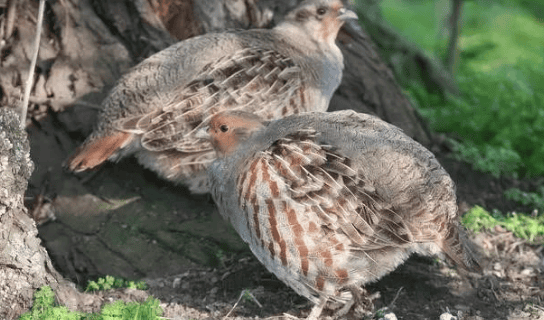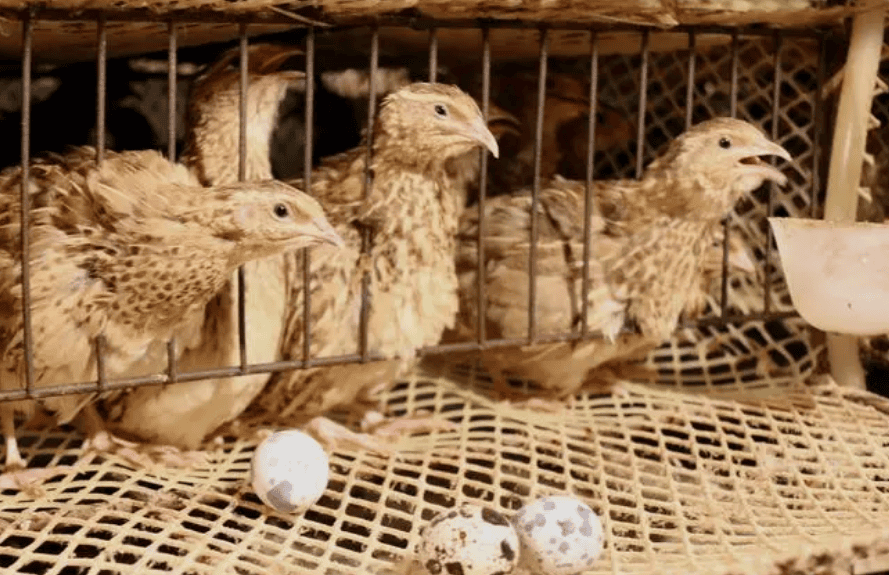Everyone is familiar with vitamins. The application of vitamins is not only applied to humans, but also widely used in breeding. Vitamins play an important role in the growth and development of quail and various life activities. Most vitamins cannot be synthesized in the body and must be supplied from the feed. The lack of any species will have adverse effects on growth and production. The supplement of vitamins A, D, E, K and B vitamins is especially important for quail.

(l) Vitamin A
can promote growth and maintain It plays a role in the integrity of epithelial cells and is a component of rhodopsin in the eye. When lacking, chicks will grow slowly, with dry feathers, dry eyes, night blindness, and unsteady gait. When there is a shortage of breeding quail, the egg production rate decreases, the egg fertilization rate and hatching rate decrease, and early embryonic death increases.
(2) Vitamin D
Vitamin D mainly affects the absorption and metabolism of calcium and phosphorus. The symptoms of deficiency are the same as those of calcium and phosphorus deficiency.
(3) Vitamin E
Vitamin E is also called tocopherol, which is necessary to ensure normal reproduction. It has antioxidant effects. When it is deficient, the egg production rate will be reduced and the hatching rate will be reduced. Reduced; secondly, cerebellar softening and exudative cord disease are prone to occur. Sometimes symptoms are similar to selenium deficiency.
(4) Vitamin K
Participates in the blood coagulation process. When lacking, bleeding occurs all over the body and it is difficult to coagulate.
(5) Vitamin B1
Vitamin B1, also called thiamine, is a sulfur-containing vitamin that participates in energy metabolism and is related to nerve, muscle, and gastrointestinal activities. When lacking, there will be loss of appetite, weight loss, polyneuritis (head tilt back), and reduced egg production.
(6) Vitamin B2
Vitamin B2, also called riboflavin, participates in energy metabolism and protein and fat metabolism processes, and is related to vision. When lacking, the growth and development of quails will be hindered, material metabolism will be affected, the hatching rate of hatching eggs will be reduced, and the toe claws will bend inward.

(7) Vitamin B3 Vitamin B3 is also called pantothenic acid, which is involved in energy metabolism.
When deficient, there will be lack of energy, rough feathers, swollen skin at the corners of the mouth and toes, increased eye secretions, and the adhesion of the eyelids. Growth retardation, dermatitis, hair loss, and embryonic death are likely to occur.
(8) Vitamin B6
Also called doxine, it participates in protein metabolism and is related to red blood cell formation and endocrine. When lacking, there is loss of appetite, reduced growth and development, abnormal feathers, and sometimes high excitement and convulsions. Fewer eggs are produced and hatchability is reduced.
(9) Niacin
Also called vitamin PP, it plays a role in transmitting hydrogen during the metabolic process and is related to maintaining the normal functions of the skin, digestive organs and nervous system. The main symptoms of deficiency are lack of energy, poor appetite, weight loss, poor feather growth, and easy inflammation of the tongue and mouth.
(10) Vitamin Bl2
Promotes the development and maturity of red blood cells, participates in biosynthesis in animals, promotes the production of choline and the utilization of folic acid. When lacking, the growth and development of young quails is slow, the feed utilization rate is reduced, anemia occurs, and the gizzard membrane is inflamed; the egg production of adult quails is reduced, and the hatching rate of hatching eggs is reduced.
(11) Choline
Participates in fat metabolism and affects neurotransmission. When deficient, you are prone to fatty liver, kidney bleeding, and slippery legs.
(12) Biotin
Related to the metabolism of fat and carbohydrates. When lacking, it is easy to suffer from dermatitis, slippery syndrome, and reduced hatching rate.
(13) Vitamin C
Vitamin C, also called ascorbic acid, is needed to form collagen fibers and affects the structure of the intercellular matrix of bones, teeth and soft tissues. Loss of appetite, stomatitis, anemia, reduced anti-stress ability, etc. when lacking.

 扫一扫微信交流
扫一扫微信交流
发布评论